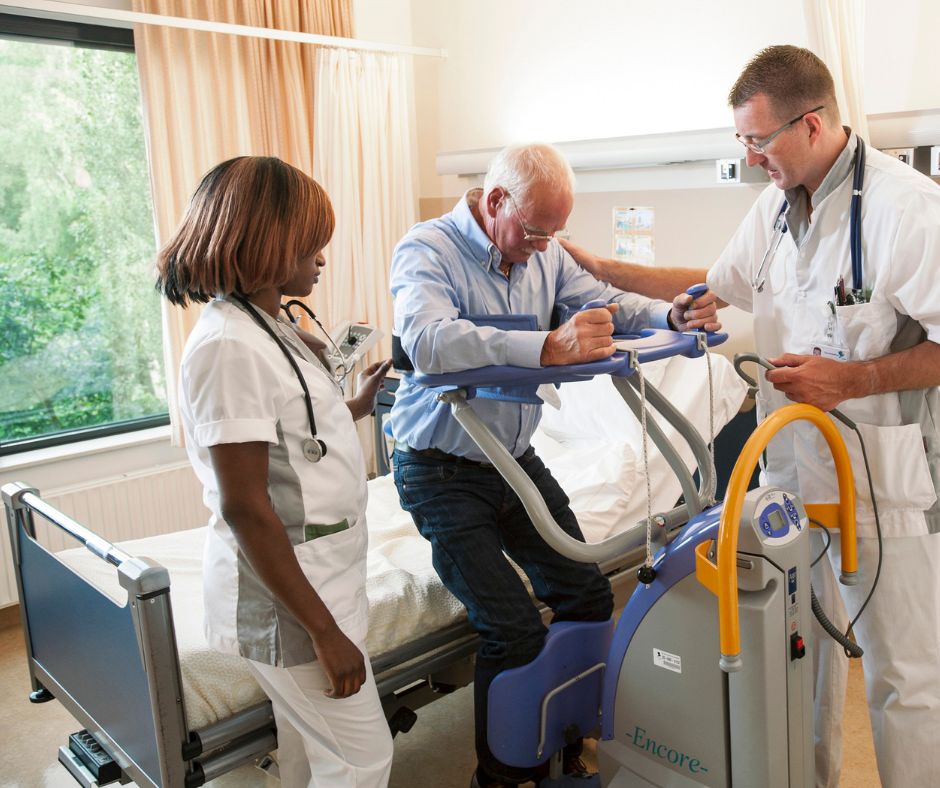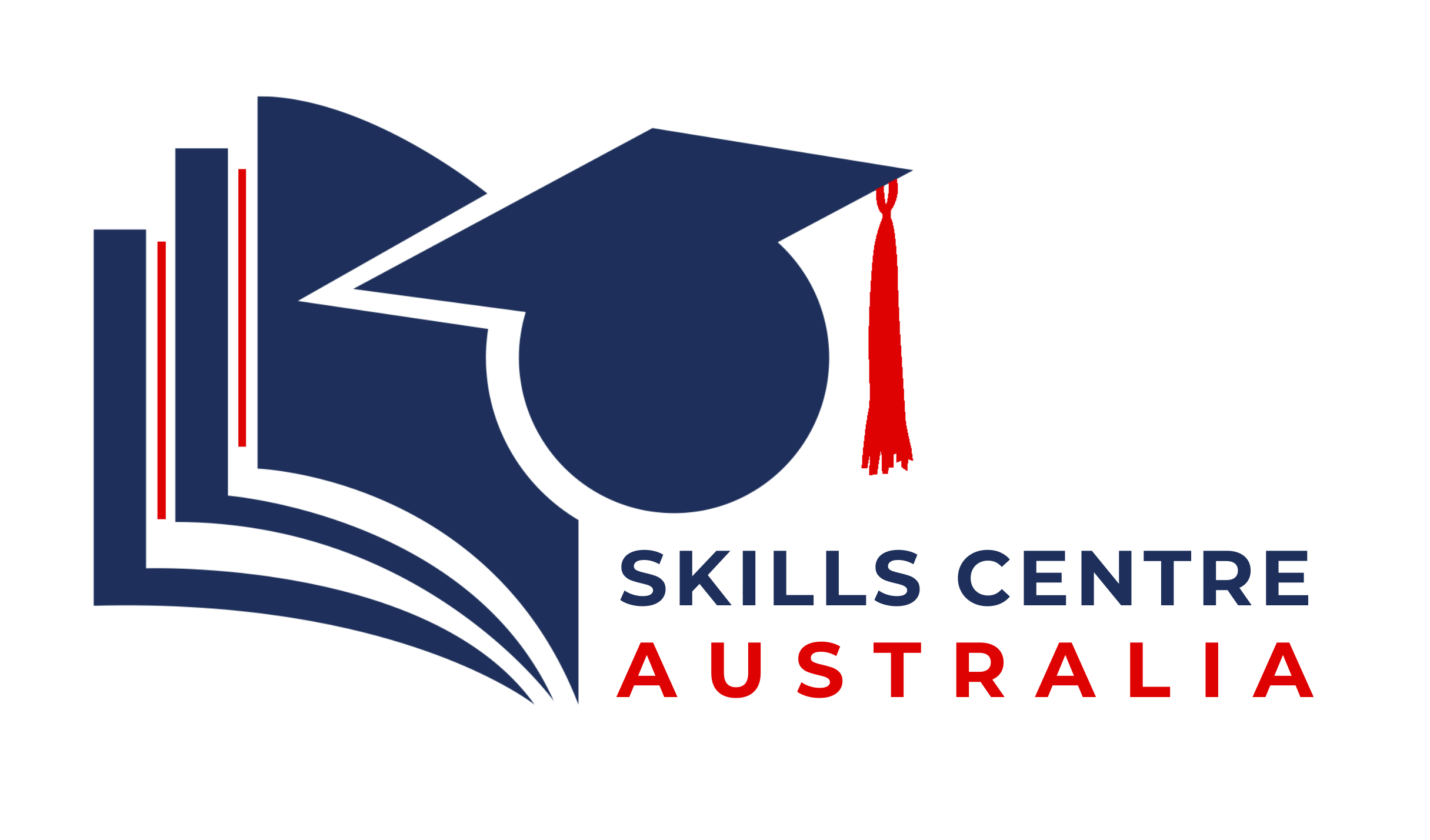Essential skills are becoming more important in the rapidly evolving landscape of in-home aged care and disability support. Providers must commit to equipping their workforce with the right skills to deliver safe, effective, person-centred support under the new Support at Home framework. It is essential to identify and embed key skills that ensure compliance, quality, and client well-being across all our training. At Skills Centre Australia, we specialise in designing our training to build the core capabilities every provider needs to develop a skilled workforce.
Let’s explore how our courses support you and your team to master Support at Home.

How Skills Centre Australia can train your staff
Skills Centre Australia is uniquely placed to help providers train their staff through our tailored courses. Our catalogue of courses is based on industry best practice standards and can be tailored to your specific needs. Our trainers have real-world practical experience, meaning they can relate the content from paper to practical examples. All our courses are up to date with the Support at Home changes and regulatory guidelines. We offer flexible delivery options for our training, including face-to-face and online training, as well as the ability to bring training to you. Whether you’re onboarding new staff or refreshing the skills of experienced workers, we can schedule group sessions, off-site training, or in-house training.
Because the sector is continually evolving, so are our courses, ensuring your workforce stays up to date with current best practice and regulatory changes.
At Skills Centre Australia, we specialise in helping providers build confident, capable support workers who are ready for the future of in-home and community care. Our training goes beyond ticking boxes; it develops the skills behind the skill. Here are five essential skills every provider should prioritise, and how our courses help bring them to life.

Essential Skills: Understanding Safety
The ability to move, lift, and assist clients confidently while protecting both the worker and the person receiving care is an essential skill. It’s not just about learning techniques; it’s about understanding the why behind each movement.
When staff know how the body works, how to assess a task, and how to communicate with clients before moving them, they reduce the risk of injury and improve the overall care experience.
At Skills Centre Australia, our Manual Handling course builds that awareness. Students learn the principles of safe movement, correct body posture, teamwork, and risk prevention in real-world situations. This hands-on learning develops the judgement and confidence that turn physical skill into professional safety.

Essential Skills: Building a Professional Mindset
Before support workers can deliver exceptional support, they need to understand the fundamentals of what support work truly means. Knowing your role, respecting, developing, and maintaining professional boundaries, providing accurate documentation, and understanding clients’ rights with dignity, care, and respect are essential skills.
Without this foundation, even the most practical abilities fall short. A professional mindset ensures consistency, reliability and ethical service delivery.
Our Introduction to Support Work course helps new and existing staff develop this essential understanding. It sets the tone for a career built on responsibility, empathy, and self-awareness, all qualities that make care not just a job, but a career.

Essential Skills: Attention to Detail
Often complex community supports like Medication and Administration demand precision, patience, and care. Understanding instructions, double-checking doses, and documenting accurately are all essential skills support workers need when assisting clients while in the community.
Even minor medication errors can have serious consequences, which is why developing a culture of accountability is so important. Support workers must be able to identify when something doesn’t look right, ask questions, and communicate effectively with supervisors, family members, and clinicians.
Our Medication and Administration training empowers support workers to work safely and confidently within their scope of practice. Through interactive scenario-based learning, participants build the knowledge and responsibility needed to support clients’ health and safety.
This course helps transform routine medication tasks into skilled clinical awareness, reinforcing that safety is a non-negotiable part of care.

Essential Skills: Empathy in Action
Caring for others is deeply personal work. The ability to support someone’s daily needs whilst respecting their privacy, independence, dignity and maintaining professional boundaries is an essential skill.
In personal care, small gestures make a big difference. A calm tone, a gentle approach, or taking a moment to explain what’s happening can transform an experience from clinical to compassionate.
Skills Centre Australia’s Personal Care training helps students build the confidence to assist clients safely and respectfully. Students explore real-life scenarios around hygiene, grooming, and daily living, such as toileting and showering, while focusing on emotional intelligence and person-centred care.
Through this training, empathy becomes a skill students can apply every day, helping to strengthen relationships and improve client outcomes.

Essential Skills: Communication and Interpersonal Skills
Support workers often work face-to-face with people, and effective communication is an important asset. Practising active listening with empathy and compassion helps staff connect on a personal level, a skill that may not always be formally taught but is essential to meaningful person-centred care. Support workers will encounter people from all walks of life, with various cultural backgrounds, so having a solid foundation of cultural awareness, with a focus on collaboration, is also essential.
Effective communication and interpersonal skills are among the most valuable assets a support worker can have. Because support workers engage face-to-face with people every day, the ability to communicate clearly and respectfully is vital for building trust and understanding.
Strong communication isn’t just about speaking and listening; it’s about collaborating effectively within a team, being reliable and adaptable, and approaching challenges with patience and problem-solving skills. When paired with a genuine passion for helping others, emotional resilience, and a commitment to continuously learn, these abilities elevate a worker from competent to truly exceptional.

Choosing Skills Centre Australia
At Skills Centre Australia, we understand that excellent care begins with great training. Our courses are designed to do more than teach; they empower your staff to think critically, act safely, and provide care with heart. By choosing Skills Centre Australia as your training partner, you’re investing in practical, high-quality education that aligns with industry standards and real-world needs.
Whether you’re developing new workers or providing refreshers for experienced ones, we’ll help your team gain the confidence and competence to deliver exceptional care every day. These are the skills that set your organisation apart, and the reason why you should train your team through Skills Centre Australia.

